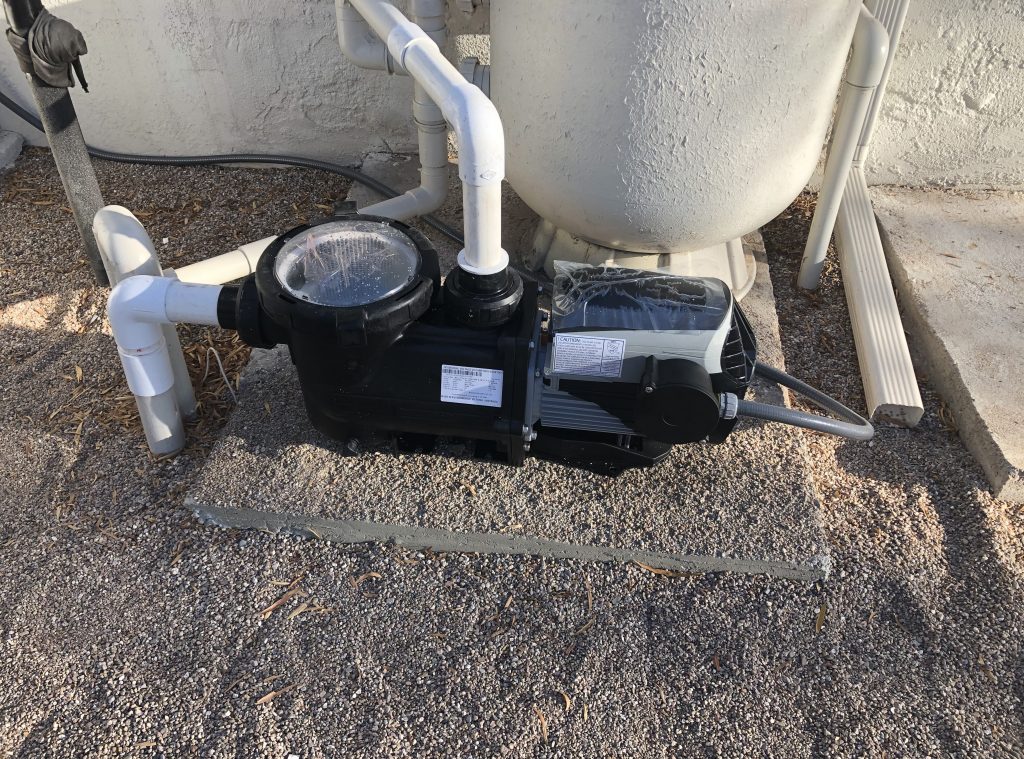The federal government has a new regulation for pool pump efficiency that goes into effect on July 18, 2021. No, this isn’t new. Like most federal policies, the regulation passed a few years ago but is enacted this year. This gave manufacturers and builders time to convert and prepare.
The regulation is intended to help consumers save money on energy bills and also save the planet with a reduction in carbon footprint. Not a bad deal. But what does it actually mean for you, a homeowner who currently has a pool or is considering installing a pool?
The Pool Pump Regulation
First, let’s discuss, in easy to understand terms, what the regulation actually says.
Pool pumps move the water, mixing, cleaning, keeping it filtered, and preventing stagnation. Many pumps, until recent years, have been single-speed. This means they would run for a few hours a day at a high flow rate. But usually, a lower rate is sufficient for keeping pool water moving and clean.
The new regulation will require a certain level of energy efficiency, based on the horsepower of the pump. Currently, the regulation can only be met with a variable speed (VS) pump. Variable speed pumps have more than one flow rate setting, so they aren’t always running high. They have lower flow rate speeds to keep the pool clean while reducing the energy used.
This will save pool owners between 40-80% on their energy bills. The VS pump will likely pay for itself in two years or less, and the pump should last far longer.
What’s Required of New Pools?
For new pools, this should be pretty seamless. It shouldn’t make a difference to the installation process and will save you on your utility bills to operate the pool. Variable speed pumps can be used on inground or above ground pools and will keep your new pool every bit as sparkling clean as the previous pumps.
(Please note: if you have been quoted a single-speed pump, discuss with your pool builder if there is a price difference to install a variable speed pump instead.)
What’s Required of Existing Pools?
The new regulation only affects new and replacement pumps. Existing single-speed pumps are not required to be replaced with VS pumps if they are fine and functioning. If your current pump is fully operational, you may continue using it as long as it works. However, when you do need to replace the pump, it will be necessary to replace it with an efficiency-compliant, variable-speed pump. If you want to take advantage of the utility savings now, you certainly can make the switch to a more efficient pump.
Installing or Replacing the Pump
The experts at Peek Pools can walk you through the whole process, helping you discern what kind of pump you have, what you need to meet the regulation, and installing or replacing the pump. Don’t wait until July. Call today at 615-866-8800 to get on the schedule and start saving money and the planet!

One thought on “New Pool Pump Regulations: What Pool Owners Need to Know”
Comments are closed.